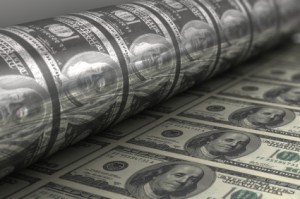No one can serve two masters. Either he will hate the one and love the other, or he will be devoted to the one and despise the other. You cannot serve both God and Money.—Matthew 6:24
Rats and roaches live by competition under the law of supply and demand; it is the privilege of human beings to live under the laws of justice and mercy.—Wendell Berry, What Are People For?

As Christians we claim to love and serve God first and foremost. But as American Christians we live in a culture that encourages us to compartmentalize. At worst we pay lip service to God during worship time and then live the rest of our lives heedlessly conforming to the society around us. Most of us know better than that. With a conscious effort we work our loyalty to God into how we pray and what movies we watch and how we teach our kids and relate to our direct neighbors. That is hard to do, but we’ll find a fair amount of social support for doing it. But what happens when we go the next step—when we try to conform our economic lives to the laws of justice and mercy?
We are likely to be blocked by our own ignorance. Too often we don’t know who grew the food and made the products that we buy. We don’t know where our waste gets dumped. We don’t know what companies are supported by our retirement money. We don’t know what our taxes our spent on. The thought of researching these things is daunting.
Living off-grid, living an alternative to the consumer culture, shortens some of our supply lines, helps us to understand where some of our resources come from and some of our wastes go, and may make it easier for us to imagine the people and places affected by our buying and to understand their importance.
We are also likely to be blocked by the widely held assumption that economic laws are as unbreakable as natural laws, that the economic system we live in is a fact of nature or an act of God rather than the sum of the choices that each one of us makes every day. If we question this assumption we are likely to be told that we are quixotic, unrealistic, overscrupulous.
Living an alternative reminds us frequently that the world’s assumptions about what is realistic and what is crazy may be off-base. It encourages to check our ideas against the concrete reality of our own places and communities, and to keep quiet enough to hear the still small voice.
 Off The Grid News Better Ideas For Off The Grid Living
Off The Grid News Better Ideas For Off The Grid Living



